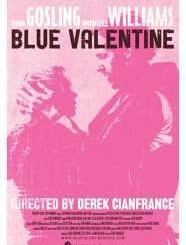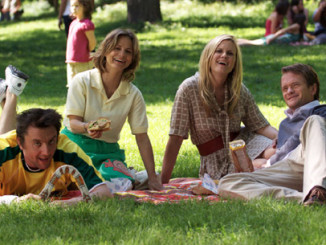 Café is an independent film which has a lot going for it – an able and engaging cast, a nice location and some visually pleasing cinematography. Unfortunately, it is in the service of a script that while it has some moments, ultimately falls apart under the weight of its own ambitions.
Café is an independent film which has a lot going for it – an able and engaging cast, a nice location and some visually pleasing cinematography. Unfortunately, it is in the service of a script that while it has some moments, ultimately falls apart under the weight of its own ambitions.
Café will have its world premier screening tonight at the Philadelphia Film Festival.
A West Philadelphia coffee shop whose regular clientele make up a microcosm of the surrounding neighborhood. There’s a computer geek who thinks that a pre-teen girl named Elly is hacking his computer. While a woman interviews prospective applicants for a local rehab center, a drug dealer (Jamie Kennedy) sits in the back of the café, desperately trying to blend in with the other locals. A copy stops in and chats idly about his junkie cousin. Stationed at a table by a window, a writer jots down observations of the various customers’ comings and goings in a notebook. Meanwhile Todd the barista (Daniel Eric Gold) pines away for his co-worker Claire (Jennifer Love Hewitt) even though she is trapped in an abusive relationship.
The movie starts with what has become a rather clichéd indie film trope – A glimpse of some sort of tragedy with the bulk of the narrative being a flashback that leads up to the incidence. Here, it is a number of gunshots ringing out after several officers enter the café. It’s a device that is supposed to build tension as the film progresses, but it doesn’t work here. It’s mostly due to the fact that the lives of these characters don’t intertwine so much as they just occasionally glance off each other. It’s not that any of their stories aren’t interesting, it is just that each character or pairs of characters are pretty much locked into their own storylines that don’t impact on any of the others in any meaningful way.
But to address my main problem with the script is to journey into spoiler territory, so proceed into this paragraph at your own risk. It becomes apparent early on that Elly’s assertion to the computer geek (who goes unnamed in the film but is listed as “Avatar” in the credits) that everything is a computer simulation is indeed true. And from that moment, it becomes harder to be emotionally invested in anything that happens to café patrons and staff. Why should we bother if the program could be switched off causing them to blink out of existence at any moment? Anything they learn won’t have any real meaning. Elly and the Computer Geek And the final philosophical conversation between Elly and the computer geek stops the movie cold, which is disastrous, as it is trying to achieve an emotional moment.
The performances here are uniformly good, good enough to make you dismiss the triteness of the screenplay. The cast is a mixture of some recognizable names (Hweitt, Kennedy) and relative unknowns, but they function well as an ensemble, with no one trying to outperform the others. Special notice should be given to teen actress Madeline Carroll, who brings the gravitas and wisdom needed for her role, no mean feat for an actor her age.




